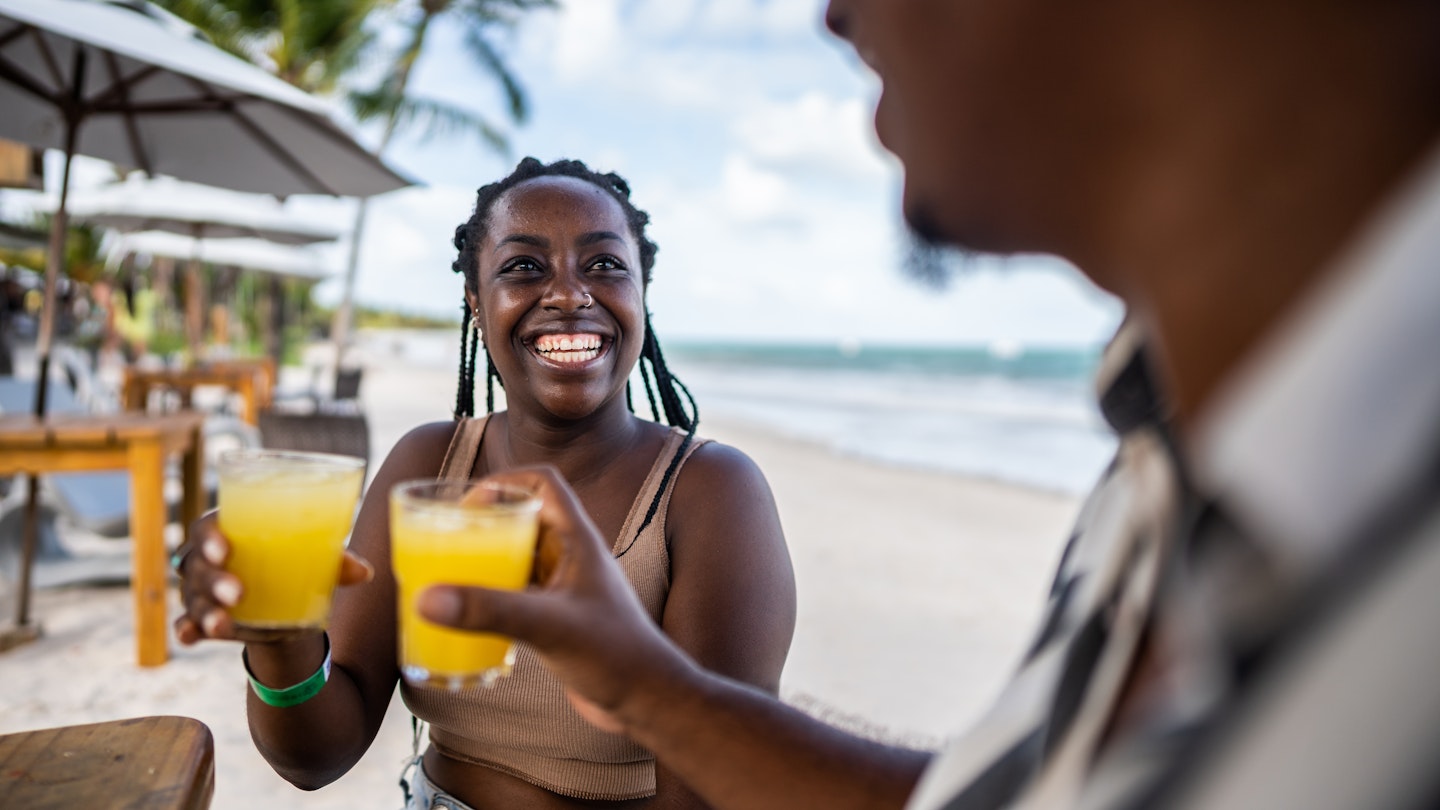Essential Tips for Traveling to Brazil
Just mention that you’re planning a trip to Brazil, and the idea will instantly conjure up images of sunny beaches and the infectious rhythm of a samba beat or the sultry melodies of bossa nova.
From the iconic yellow and blue kit of its national soccer team, the flamboyant outfits of the Carnaval dancers, and the famously fruity headpiece of Carmen Miranda, Brazil’s cultural impression on the world has been wide-reaching. However, as a Brazilian-American, it always surprises me how little others know about the vast country’s many diverse regions and day-to-day customs.
Growing up snacking on pão de queijo (cheese bread) and brigadeiros (chocolate truffles), I’ve been visiting Brazil since I was a kid and regularly return to visit family and explore new regions.
There are endless ways to experience Brazil, but these are the top things to know if you want to plan a trip to Brazil that goes above and beyond.
1. There’s More Than Just Beaches and Jungles
The energy of Copacabana Beach and the alluring biodiversity of the Amazon Rainforest may have captured the world’s attention, but that’s really the tip of the iceberg when it comes to Brazil’s natural beauty.
Adventurous nature lovers will find Brazil to be a treasure trove that contains a wealth of geographical diversity. For example:
- In the northeastern regions, explore the massive dunes and natural swimming pools.
- Venture to the landlocked state of Tocantins, where a vast savannah is home to the remarkably unique park of Jalapão.
- National parks like Chapada Diamantina and Chapada dos Veadeiros stun visitors with their mountain vistas and waterfalls.
- Iguaçu Falls, one of the world’s largest waterfalls, consists of over 200 cascades.

2. Urban Hubs Beyond Rio and São Paulo
While Rio de Janeiro boasts Brazil’s most iconic skyline and São Paulo is a mega-metropolis that hosts many of the country’s cultural and business institutions, these are hardly the only urban centers in Brazil worth visiting. Notable mentions include:
- Brasilia, known for its unique architecture designed by Oscar Niemeyer.
- Belo Horizonte, famous for its exquisite cuisine.
- Salvador, a center for exploring Afro-Brazilian culture.
3. Brazil is a Cultural Melting Pot
The USA is hardly the only cultural stew in the Western hemisphere. Brazilian culture melds together the customs and traditions of indigenous, Afro-Brazilian, and immigrant communities. For instance:
- In São Paulo, the neighborhood of Liberdade showcases a strong Japanese-Brazilian community.
- Southern regions reflect the influence of German immigrants with their cross-timbered houses.
- Brazilians enjoy foods with Lebanese and Italian roots, making dishes like kibbeh and pizza popular late-night snacks.
4. A Little Portuguese Will Be a Huge Asset
Outside of the traditional tourism sectors, you won’t find many Brazilians who speak English. Consequently, it’s advisable to learn some basic Portuguese phrases, including pronunciations. For example:
- The ‘r’ at the beginning of a word makes a ‘h’ sound, so “Rio” is pronounced more like “Hio.”

5. A Kiss on the Cheek is a Customary Greeting
In a social situation, a kiss on the cheek is the routine greeting among Brazilians – even if you’re just meeting someone for the first time. Keep in mind:
- Cheek-to-cheek contact with a smacking sound is typical.
- Men often opt for a handshake instead of a kiss.
- The number of kisses varies by region: one in São Paulo, two in Rio, and potentially three or more in Bahia.
6. Safety Should Be Top of Mind in Urban Areas
Crime is a widespread issue throughout Brazil, particularly in large cities. Visitors are generally advised to:
- Avoid wearing jewelry and carrying expensive electronics in public.
- Stay aware of your surroundings, especially in crowded tourist areas.
- Avoid walking alone at night.
7. It’s Illegal to Drive in Flip-Flops
Even though Brazil is famous for its Havaianas, safety is a priority. Since flip-flops can easily get caught on a car’s pedals and cause accidents, it’s illegal to drive wearing them. However, it is permissible to drive barefoot.




